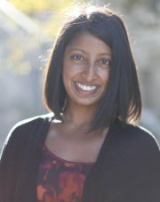Current LTOA team members |
|
Laurence J. Kirmayer, MD, Principal Investigator |
|
 |
Dr. Laurence Kirmayer, MD, FRCPC, FCAHS, FRSC, is a clinical and research psychiatrist with expertise in culture and mental health. Dr. Kirmayer has over 25 years of experience in Inuit mental health and suicide research. He founded and directs the Network for Aboriginal Mental Health Research (NAMHR), a network established to build capacity for Indigenous mental health research. With colleagues from NAMHR, he has trained several cohorts of young scholars to work collaboratively with Inuit and other Indigenous communities. He has led projects on Indigenous concepts of resilience and on culturally-based, family-centered mental health promotion for Indigenous youth. He has conducted in-depth reviews of literature on suicide prevention, mental health promotion, community resilience, and community mental wellness for FNIHB, NAHO and AHF. He is the Principal Investigator on the Listening to One Another research program funded by PHAC and CIHR. |
Sarah Wishloff, National Coordinator |
|
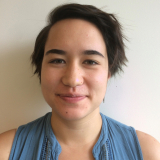 |
In January 2022, the Listening to One Another Program welcomed a new National Program Coordinator, Sarah Wishloff. Sarah is a Master’s student in the Department of Social Studies of Medicine at McGill University. Sarah was drawn to this project out of a passion for community-based mental health and is thrilled to work with community partners to develop and enhance programming initiatives. They have experience in project coordination for health research and community-based health programming in various countries in East Africa and Central Asia. Their Master’s degree research is on mental health crisis intervention. They completed their Bachelor’s degree in Anthropology at Amherst College. |
Caroline Wells (née Bec), PhD Candidate |
|
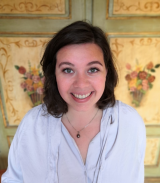 |
Caroline Wells is a PhD candidate in the Division of Social and Transcultural Psychiatry at McGill University. She has been a Research Assistant since the summer 2020. Caroline’s PhD research project is on cultural adaptation as a way to bridge knowledge systems in mental health promotion between Indigenous communities and mental health practitioners. Her objective is to bring forward this context-specific way of delivering mental health promotion to create a global community of practice about cultural adaption. Findings from her research will help improve the LTOA program and guide through collaboration around future cultural adaptations. Caroline created the LTOA podcast series and has been assisting the core team in program delivery. Caroline has experience in community-based project coordination of health, cultural adaptation of clinical guidance, mental health research and service delivery in many countries (China, Scotland, Sweden, Vietnam and the US). She completed two Bachelors degrees from France, one in medical anthropology and one in translations in English and Chinese. She received her MSc in International development (specialized in mental health and anthropology) from the University of Edinburgh, United Kingdom. |
Past members of LTOA |
|
Michelle Kehoe, Former National Coordinator |
|
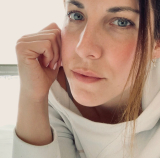 |
In April 2019, the Listening to One Another Program welcomed a new National Program Coordinator, Michelle Kehoe. Michelle is excited to be a part of the team, working alongside the Research Coordinator and students from McGill University, and is more than thrilled to be working with community partners to develop and enhance programming initiatives in community. Michelle brings over nine years of experience in working with Indigenous communities. Her experiences range from working as a research assistant, to managing community-based programs. While working in Kenora, Michelle acted as the Regional Coordinator for the Listening to One Another Program… and here, her passion for the Listening to One Another Program was born! |
Nicole D'souza, Ph.D, Former Research Coordinator & Postdoctoral Fellow |
|
|
|
Dr. Nicole D'souza has been with the LTOA program since 2016. In her current role as Postdoctoral Fellow, she is leading the evaluation research of the program, and has been working with the research team and community partners to understand issues of fit and fidelity of the LTOA program in diverse community and school setting across Canada. Using CBPR methods, she and the research team are currently working on understanding the processes involved in the implementation of the program at different stages, including the development of community partnerships, cultural adaptation of program materials, training of community partners, and the sustainability and scalability of the program. She also brings experience of working with youth and families from Indigenous and marginalized communities in Latin America and the Caribbean. She is currently engaged in an ongoing evaluation of a school-based mental health prevention program for inner-city youth in Jamaica, and is also leading a participatory evaluation of a country-wide educational empowerment program for indigenous women in Mexico. Dr. D'souza received her B.Sc in Psychology from the University of Toronto, and her M.Sc and Ph.D in Psychiatry from McGill University. |
Michaela Field, Former Research Assistant |
|
 |
Michaela is currently completing her Bachelor’s degree at McGill University in Psychology, with Minors in both World Middle Eastern and Islamic Studies and Behavioural Science. She has been working on the LTOA project as a research assistant since January 2018, where she began organizing the LTOA manuals based on feedback from community partners. Since April of 2018, her role changed to that of a research assistant, and worked closely with community partners who were creating a new training model for LTOA facilitators. Her aspirations are to work towards clinical psychology and focus on the integration of cultural elements within care. |
Tristan Supino, Master's Student and Former Research Assistant |
|
 |
Tristan is a Master's student in the Division of Social and Transcultural Psychiatry at McGill University. His Master's degree research is on the evaluation of the implementation of the Listening to One Another school program. In partnership with local Indigenous organizations and program facilitators, the objective is to assess the implementation process, the resources required for a successful delivery, and the integration of cultural safety throughout the phases of the implementation process. Findings from this research will help to improve the intervention, the cultural adaptation support materials, and delivery strategies for varied school settings. Tristan has been a research assistant for the LTOA project since April 2018. He completed his Bachelor's degree at McGill University, and has a background in Psychology, English Literature, Religious studies, and Indigenous studies. |
Mia Messer, Former Research Assistant |
|
 |
Mia is an undergraduate student in the Faculty of Science at McGill University, and has been working as a Research Assistant on the LTOA McGill team since May 2018. Alongside Indigenous partners, she has focused on the process of cultural adaptation, and is specifically interested in understanding how safety and space impacts the effectiveness of the family-strengthening program. The research findings aim to document the key inputs and processes of cultural adaptation, with the goal of better understanding the relationship between safety, adaptation and implementation. Her research interests lie in bridging the gap between academia and basic science/research, and the public at large. Particularly, Mia is interested in the role of non-clinical aspects of health and wellbeing, and how these determinants can strengthen healthcare outreach and outcomes. In the future, she hopes to deepen her knowledge of public and global health by pursuing a Masters in Public Health. |
Leah Birch, Former Research Assistant |
|
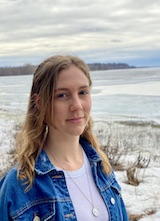 |
Leah is in her last year of studies at McGill University completing an Honours Bachelor’s Degree in International Development Studies and a Minor in Environmental Studies. She started working on the LTOA Project as a research assistant in May 2020. Leah was drawn to this project for its cultural adaptation process and community engagement. Throughout Summer 2020, Leah will primarily be developing the communication platforms for the project. She will also be assisting with research into the effect of the corona virus on mental health programming in Indigenous communities in Canada and the alternative modes of delivery such as art and technology that are available to us. She hopes to pursue a career in global health whether as a doctor or as a crisis management specialist. |
